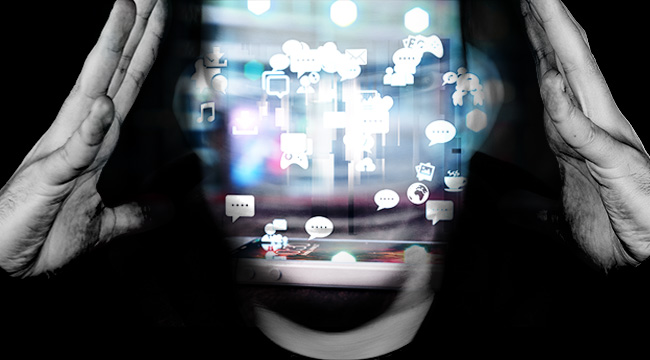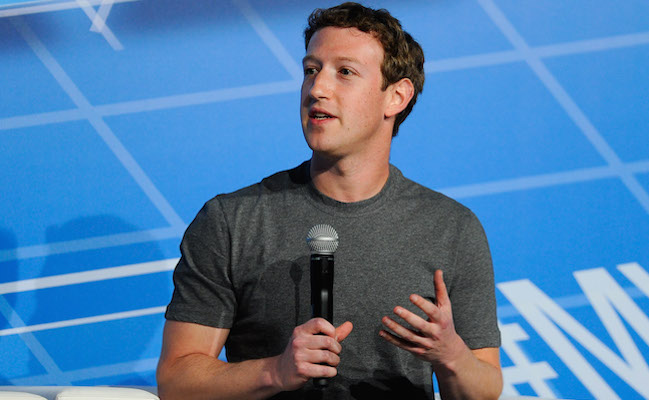
I’ve been screaming my opinions at the world via the internet for a solid decade now. Back in college, I discovered LiveJournal, which I filled with movie reviews, shoddy political analysis, and snark (which I directed at other people on LiveJournal). Then Facebook opened up! And Twitter! And Instagram! And you could link them. I have now spent a solid decade getting positive reinforcement and criticism — at least someone cares! — from strangers online.
But this looks to be the year I have to stop.
Social media has brought us all together. But perhaps it’s brought us just a little too close. Facebook, Twitter, Snapchat, and Instagram make it easier than ever to plug in and experience a firehose of anger, joy, fear, and “like” (love is a little strong, perhaps) with the tap of a thumb or a few keystrokes. But in a world where Twitter can facilitate digital hate crimes and Facebook is struggling to keep the news legit, let alone civil, does it make sense to turn off the firehose altogether?
In 2014, after Facebook “unzipped” Facebook Messenger, I removed the app. I still look at Facebook, of course, but my primary distraction over the last few years has been Twitter, where, in the space of a few short years, I’ve racked up thousands of tweets. In a lot of ways Twitter is the perfect intellectual treadmill: Read a snippet of a thought, click like, retweet, and move on to the next snippet. My Twitter timeline is a sea of RTs and favs.
Over the last few months, though, Twitter hasn’t exactly been a source of joy. The issue, really, is that the election threw everyone who fancies themselves a smart person (pretty much anyone with a computer and an opinion) a giant hunk of red meat tinged with panic to gnaw on. I discovered that my anxiety grew rapidly via the platform: What was going to happen to my gay friends? My non-white friends? My trans friends? Twitter, for all its flaws, is an excellent way to get these concerns, and opinions on them, front and center.
So I started tweeting, RTing, and sharing to make my voice heard. At the same time I started having trouble sleeping and began feeling more anxious and miserable. I stayed up later to spend more time on Twitter, and I ignored other hobbies in favor of immersing myself in a sea of bite-sized information, tweeting and retweeting until reloading my feed became muscle memory.
“Sherry Turkle has written about how these apps have been ingeniously designed to trigger the brain’s reward center. We log into Facebook and we have Likes and notifications waiting for us,” Biondini says. “It was purposely designed like that, by Facebook’s researchers and UX designers, so we’ll return to Facebook over and over, like a rat to the lever. And we go back again and again to get our fix.”
Turkle, for those unfamiliar, has spent years arguing that social media is a negative. As MIT’s Abby Rockefeller Mauze Professor of the Social Studies of Science and Technology, Turkle tries to find the psychological and social impact of technology, making it more or less her life’s work, and she rarely likes what she sees. She’s pointed out that there’s value to in-person communication that Facebook just can’t replace, a position which isn’t particularly uncommon among scientists.

It’s not a secret that social media can affect our mental health. Since the inception of Facebook, we’ve discovered that social media can make us depressed, exhaust us physically, and leave us anxious, but it might also have positive impacts on self-esteem and be a place to connect for people with mood disorders and other struggles, offering a support network. It’s really all about fitting these new(ish) platforms into your life in a healthy way.
Biondini notes that the problem with social media is that it makes everything more intense:
“People use social media for an experience, to feel a greater depth of feelings: to feel more connected, to laugh, to share things they’re proud of, to be jointly enraged,” she says. “We connect on social media for the same reasons we connect with people in real life: to feel something. And the opposite is also true: Social media can also be used not to amplify emotions, but to deaden them.”
That was really the thing I experienced. Even before the election, something was always on fire on Twitter; there was always something to be angry about, and it was constant, never-ending:
*wakes up and looks at phone*
ah let's see what fresh horrors await me on the fresh horrors device— Miss O'Kistic (@missokistic) November 11, 2016
Twitter is very, very good at surfacing news, and the old adage of “If it bleeds, it leads” holds true. Unless you fill your feed with emergency puppies and cute overload — and that’s a valid strategy — if your friends are watching the news, they’re going to share it with you. In some ways, that’s a good thing, but it also means you’re constantly seeing something else that leaves you aghast.
What struck me was that I didn’t think about any of this or the impact that my immersion in social media was having on my psyche. When a friend asked me, point blank, whether I’d considered just deleting Twitter off my phone, the answer was “No, I just haven’t.” At all. Looking at it, and looking at my Twitter usage, it occurred to me that Twitter fit so seamlessly and easily into my life — a series of pellets fed to me so that I’d make more pellets for others to consume — and that there was so little tangible cost to using it, that I simply hadn’t thought about the intangible costs. Biondini recommended logging out completely, so “when you pick up your phone to check your page, you’re confronted with the log-in screen, rather than your home page. There’s a barrier between you and the pleasurable reward of your notifications.”
“Notice the impact that has on you,” she said. “If it creates a sense of frenzy or fear, it might be a sign of a deeper problem.”
The idea of removing Twitter from my phone, when I seriously considered it, didn’t fill me with fear; it filled me with relief. I can’t delete my Twitter account entirely — Twitter is great for getting your writing in front of eyeballs — but for a long moment I had to ask myself whether having it on my phone worth it. Was having it sitting there, tempting me to get on the discourse treadmill every night, rewarding me? It wasn’t. Into the garbage bin it went.

The results were almost immediate. I stopped getting sucked into tweeting until the wee hours, of course, but I also managed to get a little distance between myself and the app. I tweet less and I tweet more judiciously. I still get in arguments, but they don’t drag on for hundreds of tweets.
I’m still anxious. I’m still afraid for my friends, worried about the direction of the country, and sometimes spend an hour tweeting out amateur politics that anger total strangers on the internet. But I’m sleeping better, and I’ve found that if I only use Twitter during work hours, I’m still informed, but less angry, mostly because I no longer get into pointless fights with total strangers, but only with people I know. I still miss the treadmill, but I find I can more easily set aside my worries for a few hours to sleep if I’m not constantly being reminded they exist.
Then again, I just downloaded Instagram… so maybe I’m not off the treadmill just yet.
